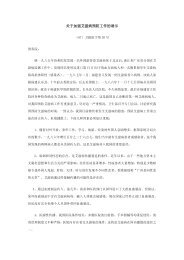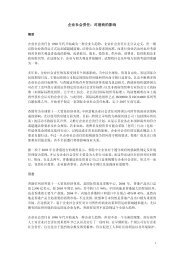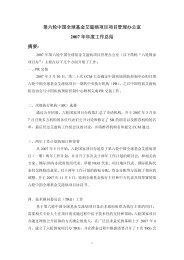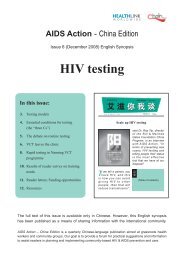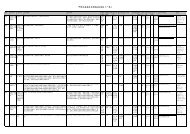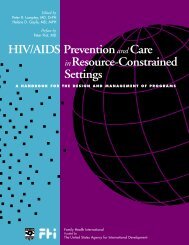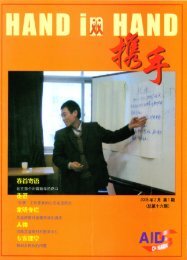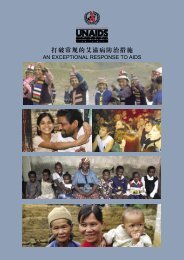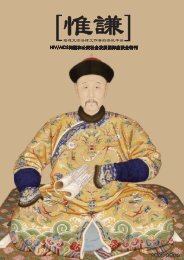The Training of Trainers Manual - UNFPA
The Training of Trainers Manual - UNFPA
The Training of Trainers Manual - UNFPA
Create successful ePaper yourself
Turn your PDF publications into a flip-book with our unique Google optimized e-Paper software.
Day 5<br />
Exercise: Snowball fight<br />
Objectives<br />
To identify the differences between peer counselling and peer<br />
education<br />
To identify skills and qualities involved in giving individual peer<br />
support<br />
30<br />
minutes<br />
To become aware <strong>of</strong> challenges, obstacles, and limits <strong>of</strong> peer<br />
counselling activities<br />
To emphasize the importance <strong>of</strong> referral skills in peer education<br />
Materials One sheet <strong>of</strong> paper per participant, pens, the text <strong>of</strong> Handout 13.<br />
Types <strong>of</strong> Peer-Led Approaches (B) written on a transparency for<br />
overhead projection or copied on flip chart paper, and the handout<br />
itself for distribution<br />
Process<br />
Part 1<br />
Ask participants to write on a sheet <strong>of</strong> paper what they think are the differences<br />
between peer counselling and peer education. When they are finished, ask<br />
participants to crumple their sheets into a paper ball, and throw the balls around<br />
for a few minutes to other participants (having a ‘snowball’ fight), so that everyone<br />
gets someone else’s response. Have each person read the response they now hold,<br />
ask them to respond, and then ask the group react.<br />
Structure and summarize the discussion around the following issues:<br />
Role <strong>of</strong> the educator<br />
■ Knows the content<br />
■ Teaches for a specific amount <strong>of</strong> time, usually short-term<br />
■ Is goal oriented<br />
■ Works to improve knowledge, attitudes, and skills to facilitate<br />
behaviour change<br />
■ Refers to other pr<strong>of</strong>essionals as needed<br />
Role <strong>of</strong> a counsellor<br />
■ Is trained in counselling skills<br />
■ Conducts counselling as a potentially long-term process<br />
■ Works with a person’s thoughts, feelings, and behaviour<br />
■ Has an open-ended relationship with the person being counselled<br />
Section 2. Guidelines for <strong>Training</strong> <strong>of</strong> <strong>Trainers</strong><br />
109



